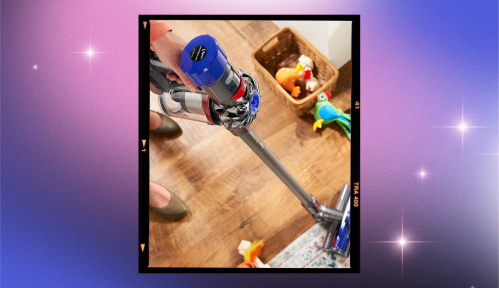The holiday season is here, and with family gatherings, work parties, and meetups with friends you haven’t seen in a while, you may experience more snoobs than usual. You may not have heard of a “snoob” (no, it’s not side boob), but you’ve certainly experienced one—it’s that awkward silence that pops up and kills the momentum of a conversation. They can pop up in small talk with co-workers, intimate discussions with a partner, and even casual convos with close friends.
Experts in This Article
professor of psychology at Fordham University and a cognitive-behavioral psychologist at Wellness Associates in White Plains
clinical psychologist at Cleveland Clinic
For many of us, a snoob feels like a social alarm bell that causes a bit of panic and our brains quickly go into overdrive. However, the psychologists we interviewed say a snoob is a natural pause in an interaction, and it’s normal to feel uncomfortable. In fact, we can learn to become more at ease with it. Ahead, more on how to deal with the snoobs:
Where did the term ‘snoob’ come from?
The term originated on the Fifty Words for Snow podcast, where hosts Maggie Rowe and Emily Garcés explore unique words, and in one of their regular segments, discuss words that don’t exist, but should.
“Recently, my friend Eric Giancoli joined us [on the podcast] to introduce a term he created for this awkward vulnerable gap in conversation: the snoob,” Rowe writes in a piece about embracing silence for Psychology Today. As Rowe explains, different personality types respond differently to the snoob, but for most people, uncomfortable silences are disconcerting. We get it: those moments can feel like they last forever, and we start assuming all kinds of things.
Why can’t we embrace the silence?
Difficulty with silence in conversation is common and intuitive, explains Dean McKay, professor of psychology at Fordham University and a cognitive-behavioral psychologist at Wellness Associates in White Plains, New York. During a snoob, “We start to have an inner dialogue pretty fast where we ask ourselves, ‘Why is no one speaking?’ ” he says. “If you look around and everyone is suddenly quiet, you try to make an interpretation as to what it means.” It’s adaptive behavior: we’re trying to cope with some uncomfortable feelings. “From an evolutionary standpoint, it’s important to understand what people’s intentions are, and that’s more difficult if they’re not speaking.”
But the conclusion that the silence is “awkward” is more subjective, he says. “Some people are content to sit silently with another person. You might go on a drive with someone like that, where they are perfectly fine to sit there with no conversation, and if you feel awkward about it, it’s more of a ‘you problem’ and less of a ‘them problem,’ ” he says.
A snoob may be more challenging for some
People with anxious tendencies may find silence especially difficult, since they may be more likely to assume that a pause in conversation is negative or somehow reflects poorly on them, McKay says.
People who are anxious will often respond to silence with “mind reading,” McKay explains. “Mind reading is where you’re trying to make a guess about what the other person is thinking to help explain why they’re being quiet or why they did something.”
While this process is normal and something most people engage in from time to time, people with anxiety are more prone to negative assumptions—that there is something wrong with the situation or with them. Am I boring? Did I say something offensive? Do they not want to be here?
McKay says it can be helpful to question and challenge this tendency since our presumptions are often wrong.
“If you find yourself sitting quietly with someone, and you’re saying to yourself things like, ‘they’re not happy with the conversation, they’re not happy with me, they’re bored,’ the follow-up question to oneself is, ‘What evidence do I have that any of these conclusions are reasonable?’” Mckay says.
The upside of silence
Although discomfort may be an evolutionary response to silence within a group, we can learn to embrace a conversation pause and accept more regular, extended silence within certain close relationships. It can help us to become better listeners, as well as to be less likely to say things we don’t mean.
McKay says that getting comfortable with silence can help us “develop that filter” to prevent us from saying things that are not useful or even harmful.
Susan Albers, a clinical psychologist at Cleveland Clinic, agrees. “I think it is incredibly important to get comfortable with silence,” she says. “It allows people time to digest and respond instead of react.”
Further, if you’re talking about feelings, a pause or moment of silence can help the other person feel that you’re holding that feeling with them instead of throwing it aside. “It creates intimacy,” says Albers, noting that people who are able to hold silence are often perceived as being confident and assured.
But how can we learn to embrace the snoob if it feels so awkward to most of us? “Asking people questions can be a way to spark conversation and keep the conversation going, and listening well helps you to be more comfortable with silence,” Albers says.
Sign Up for Our Daily Newsletter
Get all the latest in wellness, trends, food, fitness, beauty, and more delivered right to your inbox.
Got it, you've been added to our email list.











